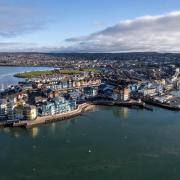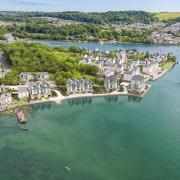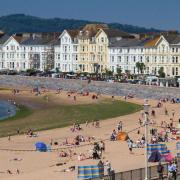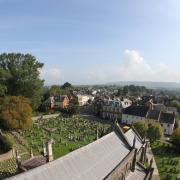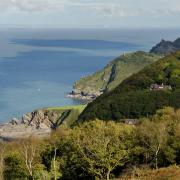Which beaches in Devon will have RNLI lifeguard cover this summer?

The RNLI has announced which Devon beaches will have lifeguard cover this summer.
From Saturday 27 June RNLI lifeguards will be patrolling at Dawish Warren and Teignmouth North beaches in Devon.
From Saturday 4 July, RNLI lifeguard patrols will start patrols at Westward Ho!, Sandymere, Sandy Bay, Blackpool Sands, and Challaborough in Devon.
This comes in addition to the beaches at Exmouth, Bantham, Croyde and Woolacombe where patrols have already started.

Guy Botterill, RNLI Area Lifesaving Manager in the south west says: “The charity has been providing a lifeguard service on a limited number of beaches since the beginning of June which has enabled us to thoroughly test the new ways of working, PPE, staffing and new equipment as a result of Coronavirus. Despite the continuing challenges created by the pandemic, we are now confident we can provide a safe, comprehensive lifeguard service this summer.
“It has taken a lot of hard work by the whole team, especially our RNLI lifeguard supervisors and technicians, but we are really pleased to be able to provide safety cover on over 70% of the beaches we’d usually cover by the beginning of July.”
In order to ensure the safety of both lifeguards and the public, the charity has had to provide lifeguards with the appropriate PPE and enhanced training supporting the new operating procedures and precautions that must be taken in order to manage the challenges of Coronavirus, in addition to the other demands of their role.
Lifeguards will wear PPE similar to ambulance crews in some situations. New protocols for all first responders mean the lifeguards may not deal with some minor first aid cases but will support people to treat themselves. They will also try to keep socially distant from beach goers, and may need to adopt different patrol methods at times, such as not using the red and yellow flags and asking people to keep apart but close to shore, to help keep people safe while maintaining social distancing.

Have you checked out these 16 gorgeous Devon beaches ?
The RNLI ‘s beach safety campaign is urging parents to protect their families by following key safety advice to save lives around the coast this summer. The RNLI cannot be everywhere this summer and encourages people who visit the coast to stay within their capabilities and never enter the water alone.

Last year alone, RNLI lifeguards aided more than 29,000 people on UK beaches in more than 17,000 incidents, saving a total of 154 lives. They also helped to reunite nearly 1,800 lost children and teenagers with their families and aided 346 people in incidents involving inflatables.
Whilst RNLI lifeboat crews and HM Coastguard are still on call ready to respond to emergencies, the message is clear; we need the public to be aware of dangers, take responsibility for themselves and their loved ones and remember that, in an emergency, call 999 and ask for the Coastguard.
If the charity’s lifeguards were present on all beaches across the UK, they would be preventing many incidents before they even occurred by directing people to safe swimming areas, highlighting dangers such as rip currents and advising people not to use inflatables. These preventive measures cannot be everywhere this summer meaning people could find themselves in danger if they are not reading the hazard signage and following relevant safety advice.
Following key safety advice will keep people safe and help to reduce the demands placed on RNLI lifeboat crews, HM Coastguard and other emergency services. That is why parents are now being urged to take charge and be ‘beach smart’ if they visit the coast to ensure they and their families have the safest summer possible, whether lifeguards are patrolling their beach or not.
This summer with beach lifeguard patrols significantly reduced, the RNLI and HM Coastguard are advising the public not to use inflatables at all and for everyone, particularly families, planning a visit to a beach or the coast to follow this safety advice:
Always have a plan – check the weather forecast, tide times and read local hazard signage;
Keep a close eye on your family on the beach and in the water;
Do not enter the water alone;
Do not use inflatables;
Now is not the time to learn a new water sport, please refrain from the temptation;
Be aware of rip currents, typically identifiable as areas where the waves are not breaking or channels of churning, choppy water on the sea’s surface;
If you fall into the water unexpectedly, FLOAT TO LIVE – fight your instinct to thrash around, lean back, extend your arms and legs, and float;
In an emergency dial 999, and ask for the Coastguard.
Have you joined the Devon Life Facebook page yet?




